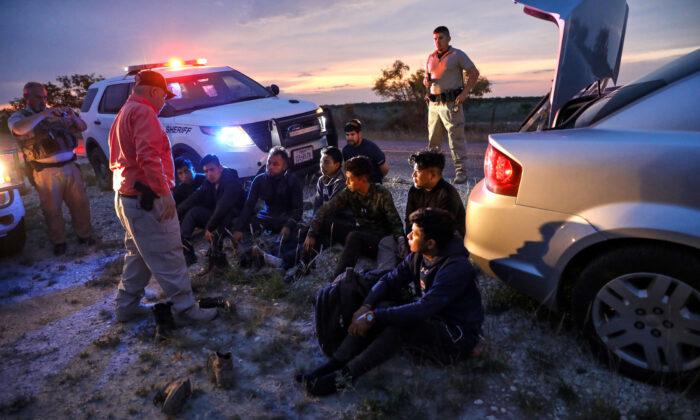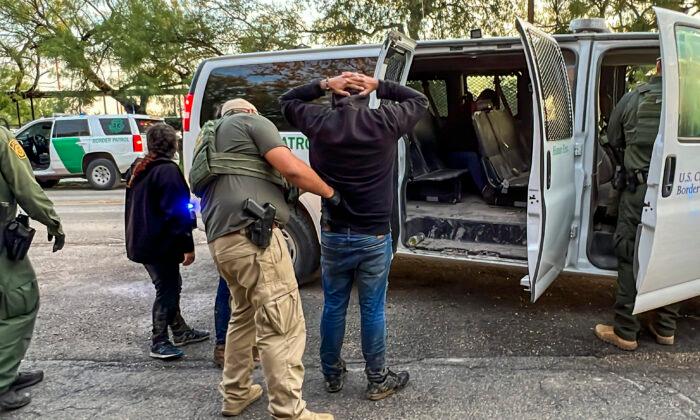DEL RIO, Texas—U.S. taxpayers are increasingly funding the passage of a constant flow of migrants who ultimately cross illegally into the United States, according to new reports.
Thousands of migrants converge in southern Mexico where they apply for asylum—which gives them unfettered travel in Mexico—then most head directly to the U.S. border, where they cross illegally and claim asylum again.
In Tapachula on Jan. 14, a Haitian man was waiting for his 3,600 pesos owed (about $170), Bensman said. A Honduran woman said her cash card provided 2,500 pesos per month for four people.
In the northern Mexico border city of Reynosa, families were receiving the equivalent of $400 every 15 days, he said.
“The United Nations began ramping up CBI [cash-based interventions] in 2019, spending $60 million on 29,000 migrants in Latin America, and then doubling the outlays in 2020, with plans to vastly increase its use in the Americas during 2022 and beyond,” Bensman said.

In fiscal year 2021, the United States contributed nearly $1.9 billion in humanitarian assistance to the United Nations High Commissioner for Refugees (UNHCR), according to the State Department.
Cash-based interventions have been used by UNHCR for several decades.
They are “often a more dignified way of assisting affected populations, as they empower people to determine their own needs and the best way of meeting them,” according to the UNHCR.
Silvia Garduno, the U.N. spokesperson in Tapachula, Mexico, said the cash cards are strictly regulated as a humanitarian intervention.
“It is provided to help ensure they can meet basic living expenses while their requests for asylum in Mexico are processed. This process may last three to four months.”
However, Bensman said he questions that the program only applies to highly vulnerable people and wasn’t able to get the actual criteria from authorities.
“I suspect they are being very liberal on the definitions based on the migrant demographics I have seen,” Bensman told The Epoch Times.
The vast majority of migrants congregating in Tapachula end up crossing the U.S. southern border within months.
“U.S. taxpayers should not be subsidizing a mass invasion of our country by an endless stream of unknown and unvetted migrants,” Gooden wrote in a statement at the time.
“It is time for the Biden administration to put an end to this crisis and regain control of our southern border.”





